Beyond Infinity Dental
West Pennant Hills Dentist
We’ve recently expanded our practice by 3X. Join us at our Grand Opening 🥂- Learn more

Enhancing Aesthetics with Precision Dental Treatments

At our dental practice, we pride ourselves on offering a welcoming and warm environment for all family members. Our team is dedicated to delivering efficient dental care aimed at enhancing your overall dental health for a lifetime of bright smiles.
Led by the experienced Dr Yang and Dr Lin, our clinic emphasises holistic dental health, integrating general wellness with dental care. They work in close collaboration with other healthcare professionals to provide comprehensive care that supports the overall health of our patients.
We reject a standardised approach to dental treatment, instead opting for a personalised strategy that addresses each individual’s unique dental needs. We provide customised treatment plans for diverse dental needs, ensuring efficient achievement of oral health goals.

WHY CHOOSE US AS YOUR DENTIST?
ADVANCED DENTAL CARE OFFERED BY OUR PROFESSIONALS

50 Years
Boasting 50 years of shared dental experience, we offer tailored treatments to suit individual needs.

Body and Mind
We offer holistic dental treatments that integrate oral health with overall physical and mental wellness, ensuring a complete approach to your care.

Up-to-Date
Our precision dental technology tailors each treatment to individual patient needs, ensuring appropriate outcomes.
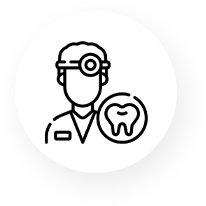
Expertise
Benefit from our experienced Oral Surgeon, Prosthetist, and Anaesthetist, all available at our advanced dental clinic.

Chinese Spoken
Our dentist, proficient in Mandarin and Taiwanese, is available to discuss and guide you through your dental care process.

National Dental Plan
We provide a dental payment plan that lets you pay for your treatments in interest-free instalments, easing financial stress.
Our Dental Team

Dr Jack Yang
Principal Dentist
Dr Yang is a general dentist skilled in all areas of dental care. He has a special interest in cosmetic and aesthetic dentistry, crown and bridge work.
Mr Jack Yi-Chieh Yang AHPRA Registration No. DEN0001589137, type: General

Dr Jeff Lin
Principal Dentist
Dr Lin has a special interest in cosmetic and implant dentistry, where he has attended extensive hours of continuing education. He also improves his craft through his travels.
Dr Jeff Lin AHPRA Registration No. DEN0001162767, type: General
TREATMENTS
IMPROVE YOUR SMILE WITH OUR MODERN DIGITAL AND LASER TREATMENTS AT OUR CLINIC.
UNCOVER 3 OF OUR DENTAL OFFERINGS
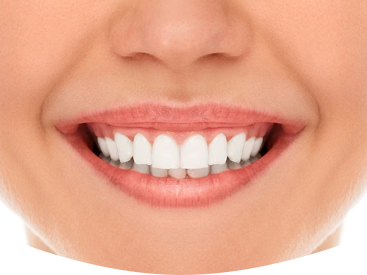
Dental Implants
LOOK LIKE NATURAL TEETH
Explore dental implants as a permanent way to restore your smile, with results that look and feel like natural teeth. Schedule your consultation with us today.

Dental Veneers
CUSTOM DESIGNED
Experience an enhancement with our personalised porcelain veneers, suitable for achieving a bright, symmetrical smile. Book your consultation with our experienced team today.
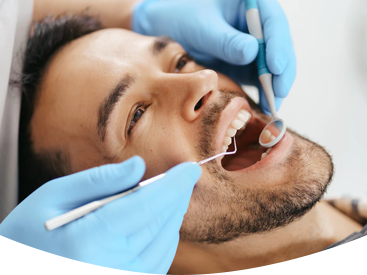
Teeth Whitening
FREE TAKE-HOME WHITENING
Choose from our selection of teeth whitening treatments, like the high-tech Epic laser procedure or the convenient Pola home kits. Book your consultation now.
EMBRACE A HEALTHIER, MORE BEAUTIFUL SMILE AT OUR CLINIC
Our dental clinic is committed to offering a broad array of dental services that go beyond the basics. We provide everything from routine dental care to advanced procedures such as laser surgery, innovative gum rejuvenation techniques, precise rotary root canal therapy, and contemporary orthodontics. Additionally, we provide cosmetic procedures designed to enhance and support your smile.
If reliable dental care is what you’re seeking, look no further than Beyond Infinity Dental. To experience our comprehensive services, book an appointment online or reach out to us at (02) 8806 3799. Trust us to be the dentists you can rely on.
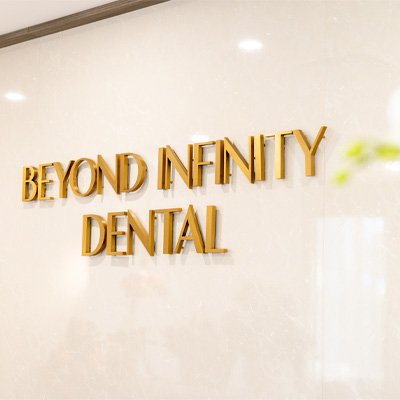
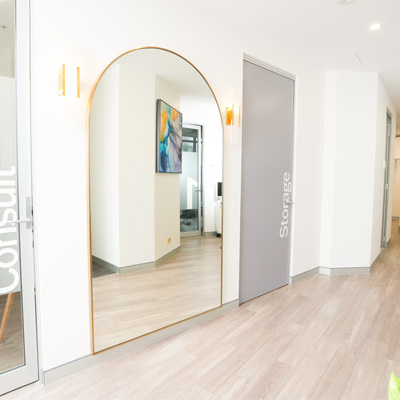

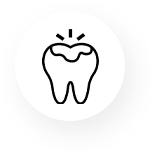
7389
CAVITIES FIXED

8895
Brighter Smiles

9054
Treated Patients
TRUSTED PROVIDERS
Our Partners








What are the necessary steps for dental implant surgery?
Initial Consultation and Planning
The starting point of the dental implant process is a detailed evaluation conducted during the initial dental visit. Throughout this consultation, the dentist will evaluate your oral health, examine the density of your jawbone, and review your medical history to confirm your suitability for implants. This stage may include taking digital scans or X-rays to evaluate the underlying bone structure and to plan the implant placement precisely. Once candidacy is established, the dental professional will create a thorough treatment plan. This plan will detail the entire implant process, including any necessary preparatory procedures such as dental bone grafting in situations where the jawbone is insufficient to anchor the implant.
Pre-Surgical Preparations
Professional dental care prior to implant surgery may involve addressing any existing oral health issues. This includes treating gum disease, extracting compromised teeth, or any other conditions that could impact the success of the implant surgery.
The Implant Procedure
The dental implant surgery is conducted under local anaesthesia, possibly with sedation, to ensure patient comfort. The dentist makes a small incision in the gum to expose the bone and then carefully drills a hole where the dental implant, a titanium screw, is inserted. This part of the procedure is crucial as it forms the new tooth’s root.
Osseointegration Process
Following the placement of the implant, a period known as osseointegration begins, where the implant integrates with the jawbone. This process is vital for the stability of the implant and can take several months. During this time, patients are advised to follow specific dietary guidelines and maintain oral hygiene to support successful healing.
Abutment Placement and Restoration
Once osseointegration is complete, an additional procedure is performed to attach the abutment, which serves as the base for the new dental crown. This minor surgery involves reopening the gum to expose the implant and attaching the abutment.
After the gums heal around the abutment, a custom-made dental crown is created and attached. Tailored to mirror the colour, shape, and size of your natural teeth, this crown effectively restores the appearance and function of missing teeth.
Post-Operative Care and Maintenance
Upon finishing the dental implant procedure, maintaining good oral hygiene and attending consistent dental appointments are crucial for monitoring the implant and overall oral health. Professional dental care includes routine cleanings and check-ups to enhance the longevity of the implant and the health of neighbouring teeth.
Which dietary options are suitable post dental implant surgery?
Following dental implant surgery, proper nutrition is crucial not only for recovery but also to ensure the success of the implant. Choosing the right foods can significantly affect the healing process, helping to prevent complications while ensuring adequate nutrition.
Importance of Soft Diet Post-Surgery
Minimising Mechanical Stress. After dental implant surgery, it’s vital to consume foods that require minimal chewing to avoid exerting pressure on the implant site. This helps in preventing dislodgement of the newly implanted post and promotes better integration with the bone.
Reducing Pain and Discomfort. Soft foods help in reducing the strain and discomfort experienced during chewing, which can be particularly beneficial in the initial days post-surgery when the area is most sensitive.
Recommended Dietary Options
Immediate Post-Surgery Diet. In the first 24 to 48 hours after your surgery, it is advisable to stick to liquids and very soft foods. Options include
- Smoothies: Packed with nutrients, smoothies can be made with yoghurt, fruits, and even protein powder to aid in healing.
- Broths and Soups: Warm (not hot) broths and creamy soups provide hydration and are gentle on the surgery site.
- Ice Cream or Gelato: These can be soothing for the implant area but should be consumed in moderation due to their high sugar content.
Foods for the First Week. As the initial recovery progresses, slightly thicker consistencies can be introduced, including:
- Mashed Potatoes: Easy to consume and fill, mashed potatoes can be enriched with butter or cream for extra calories and comfort.
- Scrambled Eggs: High in protein, scrambled eggs are soft enough not to disrupt the implant site while providing essential nutrients.
- Applesauce and Custards: These provide some variety in texture and nutrients without requiring chewing.
Foods to Avoid
Crunchy and Hard Foods. Avoid nuts, chips, hard bread, and raw vegetables until your dentist advises that the implant has integrated sufficiently and can withstand such pressures.
Sticky and Chewy Foods. Caramel, taffy, and even some types of cheese can adhere to and pull on the implant, risking damage during this critical healing phase.
Extremely Hot or Spicy Foods. These can irritate the implant site, leading to discomfort and slowing down the healing process.
Nutritional Considerations for Healing
Protein Intake. Protein is vital for healing. Including protein-rich foods like fish, tofu, and beans in your diet can help speed up the recovery process.
Vitamins and Minerals. Foods rich in vitamins A and C like sweet potatoes, carrots, and citrus fruits (in smoothie or juice form), can boost the body’s healing ability. However, these should be prepared in a manner that requires minimal chewing.
Hydration. Staying hydrated is crucial. Water, non-citrus juices, and decaffeinated teas are good for maintaining hydration without irritating the surgical site.
Long-Term Dietary Adjustments
Once the healing process is well underway and your dentist has confirmed the stability of the implant, normal dietary habits can gradually be reintroduced. However, continuing to avoid extremely hard or sticky foods can extend the lifespan of the implant and maintain overall oral health.
What is the process for wisdom teeth removal?
Wisdom tooth removal is a regular dental procedure focused on extracting one or more of the four permanent adult teeth situated at the back corners of the mouth, both upper and lower. This procedure is often necessary when these teeth do not have enough room to emerge properly, leading to pain, infection, or other dental issues.
When Is Wisdom Tooth Extraction Necessary?
Impaction and Pain. Wisdom teeth that are impacted, meaning they cannot fully emerge through the gums, can cause significant pain and discomfort. This impaction can lead to inflammation, infection, and damage to adjacent teeth.
Overcrowding. In some cases, the extraction is needed to prevent overcrowding of the existing teeth, which can disrupt the alignment of your teeth.
Preventative Measures. Dentists might also recommend extraction to prevent future dental problems, especially if the teeth are not easily accessible for cleaning.
Pre-Operative Assessment and Planning
Initial Consultation. A thorough evaluation, including X-rays or CT scans, is carried out to assess the alignment of wisdom teeth and establish the most effective approach for their removal. This assessment helps in planning the procedure to minimise complications.
Discussing Anaesthesia Options. The type of anaesthesia used during the extraction depends on the expected complexity of the surgery and the patient’s comfort level. Options include local anaesthesia, sedation, or general anaesthesia.
The Extraction Procedure
Surgical Approach. To initiate the procedure, anaesthesia is administered to ensure comfort during the surgery. Following this, the dentist performs an incision in the gum tissue to uncover the tooth and bone. Any bone hindering access to the tooth root is attentively removed.
Tooth Sectioning. In some cases, the wisdom tooth may be divided into smaller parts to be removed more easily and safely. This technique is particularly useful when the tooth is firmly anchored in its socket or the roots are curved.
Removal of the Tooth. The tooth is then carefully loosened and removed from the jawbone. The area is thoroughly cleaned to remove any debris from the tooth or bone.
Post-Operative Care
Managing Pain and Swelling. After the extraction, patients are given instructions on how to manage pain and swelling, typically involving the use of prescribed pain relievers and ice packs.
Hygiene and Care. Patients are advised on how to care for their mouth during recovery, including limitations on eating, drinking, and brushing. Following guidelines, it is advised to avoid sucking actions, like using a straw, as they have the potential to dislodge the blood clot at the extraction site.
Follow-Up Visits. Follow-up appointments play a vital part in monitoring the healing process and addressing potential complications like dry sockets or infections.
What is a dental emergency?
Situations classified as dental emergencies demand immediate attention to alleviate intense pain, significant trauma, or acute infections that might have lasting effects on both oral and overall health. Understanding how to recognise and respond to these emergencies is a crucial aspect of comprehensive dental care.
Common Types of Dental Emergencies
Traumatic Injuries. Injuries resulting from accidents such as falls, sports, or vehicular incidents that cause damage to the teeth, gums, or jaw are considered dental emergencies. Immediate treatment is necessary to address broken, loosened, or knocked-out teeth.
Severe Pain and Infections. Severe, unexplained toothache can indicate an underlying problem that requires urgent care. This pain might be accompanied by swelling or signs of an abscess, pointing to an infection that could spread if not promptly treated.
The Role of Family Dentistry in Managing Dental Emergencies
Preventive Care. Family dentistry plays a vital role in preventing dental emergencies through regular check-ups and maintenance. These visits allow dentists to monitor the development of wisdom teeth and identify potential problems before they become severe.
Education and Awareness. Educating families on how to handle dental emergencies effectively is another critical component. Dentists provide information on first aid for dental injuries and the importance of seeking immediate care when needed.
Steps to Take During a Dental Emergency
Immediate Actions. For knocked-out teeth, it’s essential to keep the tooth moist, either by placing it back in the socket, holding it in the mouth beside the cheek, or keeping it in a container of milk. For injuries resulting in bleeding, applying a cold compress and gentle pressure can help manage the situation until professional help is reached.
Contacting Your Dentist. As soon as a dental emergency occurs, get in touch with your dentist immediately. Most dental practices offer emergency contact numbers or instructions for after-hours situations.
Comprehensive Dental Care During Emergencies
Diagnostic Measures. Upon arrival at a dental clinic, comprehensive care involves thorough examinations, possibly involving X-rays or other diagnostic tools, to assess the extent of infection or damage.
Immediate Treatments. Treatment may involve pain relief, antibiotics, temporary restorations, or more complex procedures like root canal therapy, depending on the emergency’s nature. In cases of trauma, reconstructive treatments may be necessary.
Follow-Up Care. After the initial emergency treatment, follow-up appointments are crucial. These visits ensure proper healing and provide further treatments if needed, such as permanent restorations or additional surgeries.
Note: Any surgical or invasive procedure carries risks. Before proceeding, you should seek a second opinion from an appropriately qualified health practitioner.
Enhance Your Smile
We provide full-spectrum dental care at our established clinic tailored to each patient.

